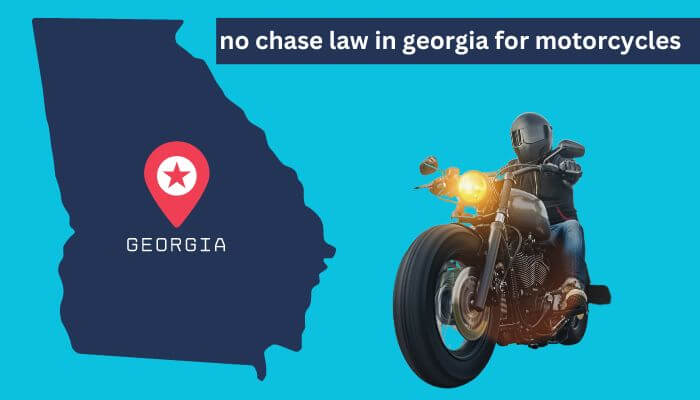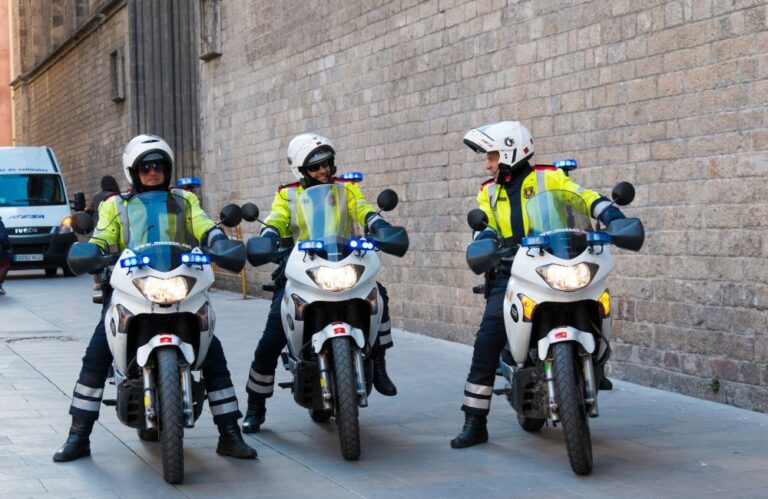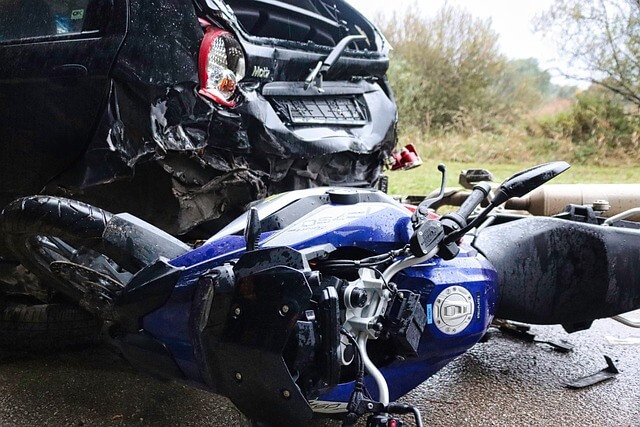Lawyer or attorneys practice in a variety of fields, including family law, commercial law, personal injury, criminal defense, and others.

Is There a No Chase Law in Georgia for Motorcycles?
When it comes to high-speed chases involving motorcycles, the question often arises: does Georgia have a “no chase” law? A “no chase” law means that police officers are not allowed to pursue motorcycles in high-speed chases, a measure intended to prevent dangerous situations that could result in accidents and injuries.
However, Georgia does not have a specific “no chase” law for motorcycles. Instead, the decision to pursue a motorcycle is generally left to the discretion of the police officers based on the situation.
What Is a “No Chase” Law?
A “no chase” law is a regulation that restricts police officers from engaging in high-speed pursuits of certain vehicles, such as motorcycles. The primary purpose of these laws is to enhance public safety by reducing the risks associated with high-speed chases, which can lead to accidents, injuries, and even fatalities. These laws aim to balance law enforcement’s need to apprehend suspects with the broader need to protect the public from the dangers of high-speed pursuits.
Current Law in Georgia
In Georgia, there is no specific law that outright bans the high-speed pursuit of motorcycles. Instead, police officers follow general guidelines when deciding whether to chase a vehicle, including motorcycles. These guidelines require officers to consider various factors before initiating a pursuit:
- The Severity of the Offense: Officers evaluate the seriousness of the crime committed by the suspect. A violent felony might warrant a pursuit, whereas a minor traffic violation might not.
- The Potential Risk to the Public: Officers assess the potential danger to other road users and pedestrians. High-speed chases in densely populated areas or during heavy traffic are typically discouraged.
- The Likelihood of Catching the Suspect: Officers consider whether pursuing the suspect will likely result in their capture without causing undue risk to the public or themselves.
By weighing these factors, officers aim to make decisions that prioritize safety while still fulfilling their duty to enforce the law.
Statistics on Motorcycle Accidents in Georgia
Motorcycle accidents are a significant concern in Georgia. Each year, hundreds of motorcycle accidents occur across the state, leading to numerous injuries and fatalities. Here are some key statistics:
- Total Accidents: In 2022, there were over 4,000 motorcycle accidents in Georgia.
- Fatalities: These accidents resulted in nearly 200 fatalities.
- Injuries: Many of these accidents led to serious injuries, often requiring long-term medical care and rehabilitation.
These numbers highlight the importance of safety on the roads, both for motorcyclists and other drivers. The high incidence of accidents underscores the need for effective measures to protect all road users.
Reasons for Motorcycle Accidents
Several common factors contribute to motorcycle accidents in Georgia:
- Speeding: Excessive speed is a leading cause of motorcycle accidents. High speeds reduce a rider’s ability to react to unexpected hazards and increase the severity of crashes.
- Lack of Visibility: Motorcycles are smaller and less visible than cars, making them more vulnerable to being overlooked by other drivers, especially in blind spots.
- Road Conditions: Poor road conditions, such as potholes or slippery surfaces, can be particularly hazardous for motorcyclists.
- Driver Errors: Mistakes by both motorcyclists and other drivers, such as failure to yield or improper lane changes, frequently lead to accidents.
High-speed chases can exacerbate these risks, making it crucial for officers to exercise caution when deciding to pursue a motorcycle.
The Debate on No Chase Laws
The issue of whether to implement “no chase” laws for motorcycles is a topic of ongoing debate. Here are some key arguments on both sides:
- Arguments in Favor: Proponents of “no chase” laws argue that these regulations enhance safety by reducing the likelihood of high-speed pursuits, which can lead to severe accidents and fatalities. They believe that the risks of chasing motorcycles often outweigh the benefits, especially when the offense is not severe.
- Arguments Against: Opponents argue that “no chase” laws could embolden criminals, leading to an increase in reckless behavior and crime. They contend that the ability to pursue suspects is a crucial tool for law enforcement, and restricting it could undermine their effectiveness.
Balancing these concerns is essential for developing policies that protect public safety while enabling effective law enforcement.
Safety Tips for Motorcyclists
Whether or not there is a “no chase” law, safety should always be a top priority for motorcyclists. Here are some tips to stay safe on the road:
- Wear Protective Gear: Always wear a helmet, gloves, and other protective clothing to reduce the risk of injury in case of an accident.
- Follow Traffic Laws: Obey speed limits, traffic signals, and other road rules to avoid accidents and fines.
- Stay Visible: Make sure other drivers can see you by using your headlights, wearing bright clothing, and positioning yourself strategically in traffic.
- Ride Defensively: Be aware of your surroundings and anticipate the actions of other drivers. Maintain a safe distance and be prepared to react to sudden changes in traffic conditions.
- Avoid Risky Behavior: Don’t speed or weave through traffic. Reckless riding increases the likelihood of accidents and makes it harder for other drivers to predict your actions.
Read More – No Chase Law for Motorcycles: A State-by-State Guide
Conclusion
While Georgia does not have a specific “no chase” law for motorcycles, police officers use their judgment to decide when a chase is appropriate based on various factors. Given the high number of motorcycle accidents each year, it is crucial for all drivers to prioritize safety.
By following traffic laws and riding responsibly, motorcyclists can help reduce the risk of accidents and injuries on the road. Everyone plays a role in making our roads safer, whether you’re on two wheels or four.
Additional Resources
For more information on motorcycle safety and Georgia traffic laws, check out these resources:
- Georgia Department of Driver Services: Motorcycle Safety Program
- National Highway Traffic Safety Administration (NHTSA): Motorcycle Safety
- Motorcycle Safety Foundation (MSF): Rider Courses and Safety Tips









